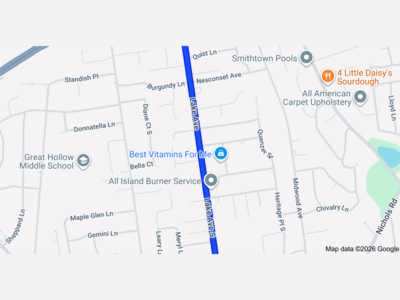Easy Habits That Can Improve Your Mental Health
Sometimes it's essential to give yourself a mental lift. Here are some actions you can take to cultivate a "happiness routine" that may assist you while going through a difficult time. These enhancements are not intended to supplant treatment for serious depression, severe anxiety, or any other medical issues. If you need aid, inform your physician or a confidant friend or relative.
Research has found that visually chaotic environments can interfere with your ability to process information. Additionally, studies have shown that having clutter in the home can raise cortisol (a stress hormone) levels, particularly among women. Combat the clutter by devising a plan to clear it out and initiating contact with a charity to schedule a pickup time.
why not treat yourself to something special? You don't have to throw caution to the wind and splurge on the latest gadgets or costly clothes; the real satisfaction lies in being able to make your own decisions. Studies show that feeling of control over life can help reduce negative emotions. Thoughtful shopping can be personally rewarding, as long as you keep your budget in mind.
Grabbing a good book is the speediest way to boost your mood. Multiple studies have revealed that reading can make a marked difference in depression symptoms, thinking skills, and cerebral performance. When you crack open a book though, avoid skimming the news, sorting through your technology guidebook, or picking up the latest recommended page-turner. Find something you've been eager to explore — may be a juicy magazine, or a more exciting novel. Devote a minimum of half an hour each day solely to reading it in a relaxed atmosphere.
Spending only 10 minutes cuddling a cuddly canine or affectionate feline can dramatically reduce college students’ levels of cortisol, the hormone linked with stress. Numerous universities have launched "pet-to-de-stress" programs. Even if you are not a student, you can still earn some ‘warm fuzzies.’ Take some time to really bond with your beloved pet, or volunteer at animal rescue center or dog adoption event for some guaranteed ‘ahh’ moments with some new furry friends.
Catch a Groovy Beat
6/14
Yes, classical music can relax you and ease tension. But what if your listening tastes are more high-energy? An Italian study found quick tempos can help calm you, too. It just happens when the music stops. After listening to fast-paced songs, the subjects’ blood pressures and heart rates mellowed. So whether your jam is Mozart or classic rock, crank it up.
Constructing a balanced dish of nutrient-dense foods can drive away the blues and have lasting positive effects. A recent study examining the diets of young adults revealed those who maintained healthy diets enriched with fruits and vegetables, as well as lean proteins, noted fewer depressive symptoms than those who did not abide by a nutritious regimen. Furthermore, evidence suggests that older adults may reap similar benefits from following the Mediterranean diet, which encompasses whole grains, olive oil, and regular physical activity and shared meals.
Give Acupressure a go!
8/14
An ancient Chinese form of healing, it involves pressing specific points on your body in an effort to release muscle tension, reduce anxiety and enhance blood flow. If you're looking for a good place to start, try yin tang--the space right between your eyebrows. Get comfortable, then take your thumb or forefinger and apply circular pressure to that point for 5-10 minutes. You may do this several times throughout the day.
Locate your flow. Take note of the noteworthy moments of your day or week. Capture the times when you feel in a state of complete investment and absorption, without stressing too much about the outcomes. Consider activities that require your active involvement, such as dancing, cooking, painting, and even housecleaning. These endeavors can distract you from your worries and should be given ample time and attention. Passively entertaining activities, such as binge-watching shows or playing video games, are not to be considered as an ideal way to achieve the flow state of mind.
Exploring ecotherapy provides insight into how having quality time in nature can reduce stress, worry, and depression. Research in 2015 discovered that individuals who engage in outdoor walks display less activity in the brain's areas where negative ideas can manifest. Begin with a stroll in the vicinity of your home or take a simple walking path for approximately 30 minutes multiple times a week. If you are feeling courageous, progress up to longer "forest bathing" (the Japanese take on nature integration). There is evidence that it is just as effective if you bring a friend.
Even if you don’t have the opportunity to get out in nature, you can still reap some of the calming benefits. Research reveals that it can help to find stand-ins for the real thing by listening to nature sounds, viewing photographs of stunning natural scenery, or imagining your ideal outdoor getaway. Apparently, simply "tuning in" to outdoor themes can help divert your attention away from worries and problems.
In this continuously developing landscape of digital mental health resources, there's no requirement for a scheduled visit. While applications on mobile phones are not equipped to identify or remedy matters like depression or anxiety, they can emphasize and increase your awareness of your feelings, which could enable you to more effectively control them. You can acquire inspirational podcasts, digital books and programs for a quick boost when commuting, waiting in a queue or going for a stroll.
Keep Up Your Support System
13/14
When you feel down, it’s easy to think others should know how you feel. But you need to be the one to keep the lines open. Make time for friends and family. Offer to help them out when you can -- some research suggests it can be more uplifting to give support than to get it. And while some experts say it’s best to meet up in person, don’t hesitate to draw on electronic tools like Skype, online chat, and texts to stay close if needed.
Seek out something humorous to brighten your day. Research has demonstrated that laughter can be an effective mood potentiator. Consider comic videos of individuals stumbling, wry British humor, a buddy who is an amusing storyteller, or humorous books and podcasts that can be accessed. Magazines may also be a great source of amusing jokes.
More News from Mount Sinai
- Man Charged With Multiple Felonies After Allegedly Breaking into Sayville Apartment Friday A 24-year-old Sayville man was arrested Friday after he allegedly broke into a Sayville Apartment and confronted the two occupants of the apartment.
- Weekend forecast for Mount Sinai Friday, Feb 6 - Sunday, Feb 8 Your weather for this weekend



